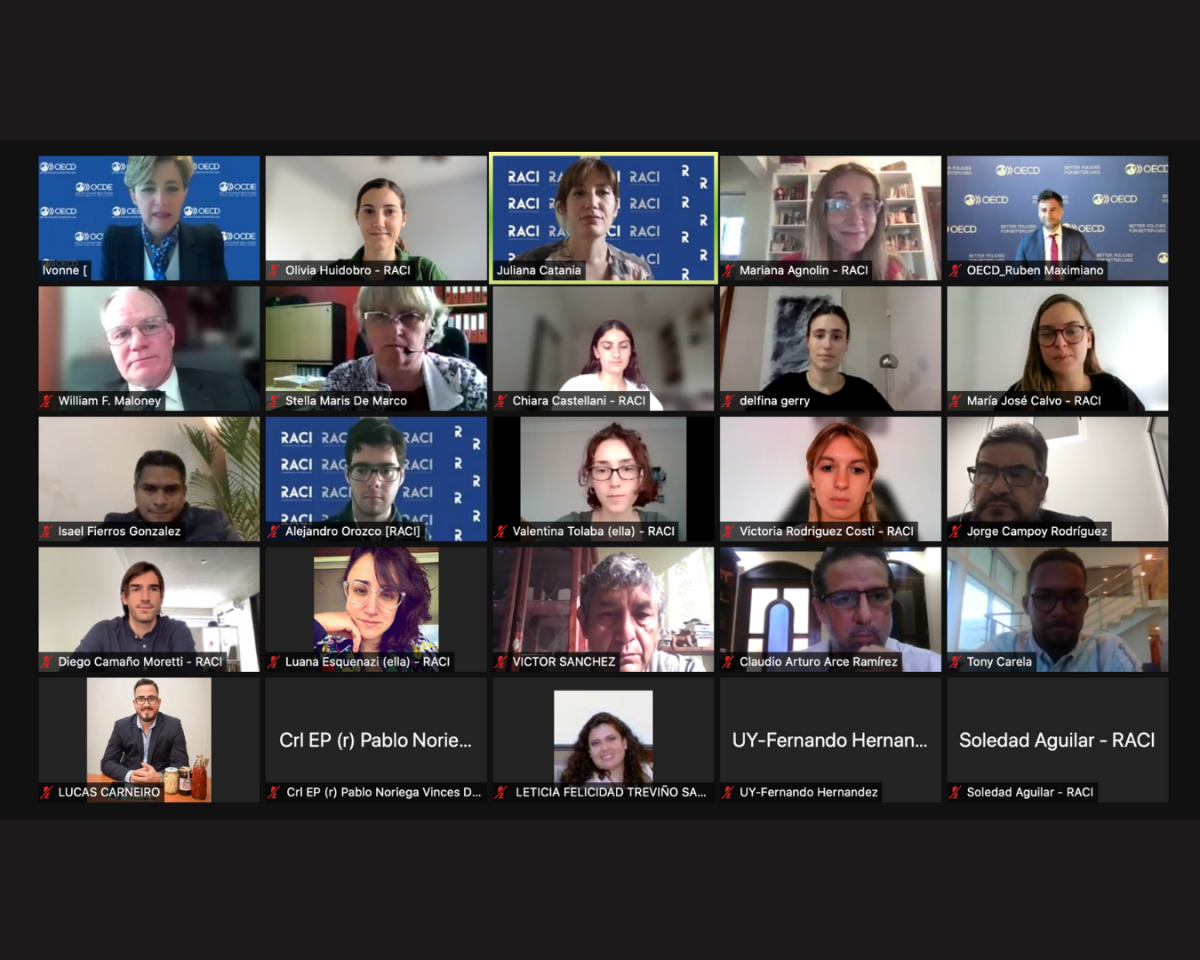On December 9, we organized a webinar together with OECD and the World Bank to reflect on the consequences of the COVID-19 crisis in Latin America and the Caribbean. Possible tools to achieve a more socially and economically inclusive post-pandemic situation were discussed.
From the OECD, Dr. Rubén Maximiano highlighted the importance of competition policies as part of the solution to the crisis. These would be useful both to balance current needs, and in turn, would contribute to more efficient markets as a whole, benefiting both large and small companies. It would also ensure a level playing field at the national and global level.
The OECD and the World Bank argued that competition policy is a central element for governments to build resilient, inclusive and sustained economies.
According to Maximiano, there are three key points where competition is essential to recover Latin America from the current crisis: governments must implement efficiency-based competition policies; these must be part of the government’s response to the crisis, leading to structural reforms; and, governments must empower and resource competition authorities to maintain enforcement and contribute to economic reforms.
Further into the discussion, Juliana Catania, representing RACI, focused on the effects of the COVID-19 pandemic on Civil Society. The crisis brought to the surface the previously existing structural inequalities and the limitations in rights suffered by the people in Latin America and the Caribbean.
The enabling environment of Civil Society, where democracy and its freedoms are developed, was affected by government decisions during the pandemic through a severe restriction in civic space both globally and regionally.
Thanks to the Perspectiva Cívica study conducted by our team, the clear need to position civil society as a relevant actor within public policies was recognized. This is due to data collected from the survey such as: a 57% increase in demands on CSOs, a 9% increase in CSO resources, and that 71% of CSOs recognize the need for greater funding and support from the State.
On the other hand, William Maloney, representing the World Bank, acknowledged that one of the major long-term concerns is the consequence of the loss of human capital after access to education has been limited for almost 2 years: in the future, social mobility and economic growth will be a conflict for both governments and society as a whole.
In terms of growth, practically the entire region has not yet managed to recover its pre-pandemic numbers, and the most worrying thing is that the growth rate for the coming years is 3%, which is not enough to reduce inequalities.
Latin America must be more dynamic in exports and reduce resistance to internal competition. In addition, the importance of allowing the entry of large companies into the region to boost the economies was expressed.
On the other hand, the entire innovation system should be considered a priority to increase business productivity and foster a strong link between universities and the private sector to transfer and adapt new ideas for industry.
Both OECD and the World Bank expressed their views on the performance of today’s companies. While Maloney commented on the need to improve human capital management skills and to give rise to competition policies, they both stressed the importance of avoiding the artificial preservation of declining sectors.
Finally, the issue of strengthening post-pandemic governance was raised. RACI stressed the importance of recognizing that the crisis is both economic and human rights related. Governance must be strengthened by respecting the rights of people in all countries of the world, but also by seeing society as the creator of public policies.
The World Bank considered that there is a great lack of legitimacy in the governments of the region. The strategy may vary, but all the panelists agreed that governments must take on the task of promoting efficiency and competition.

